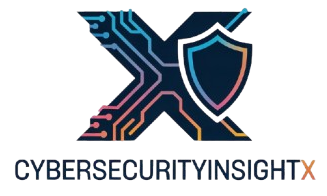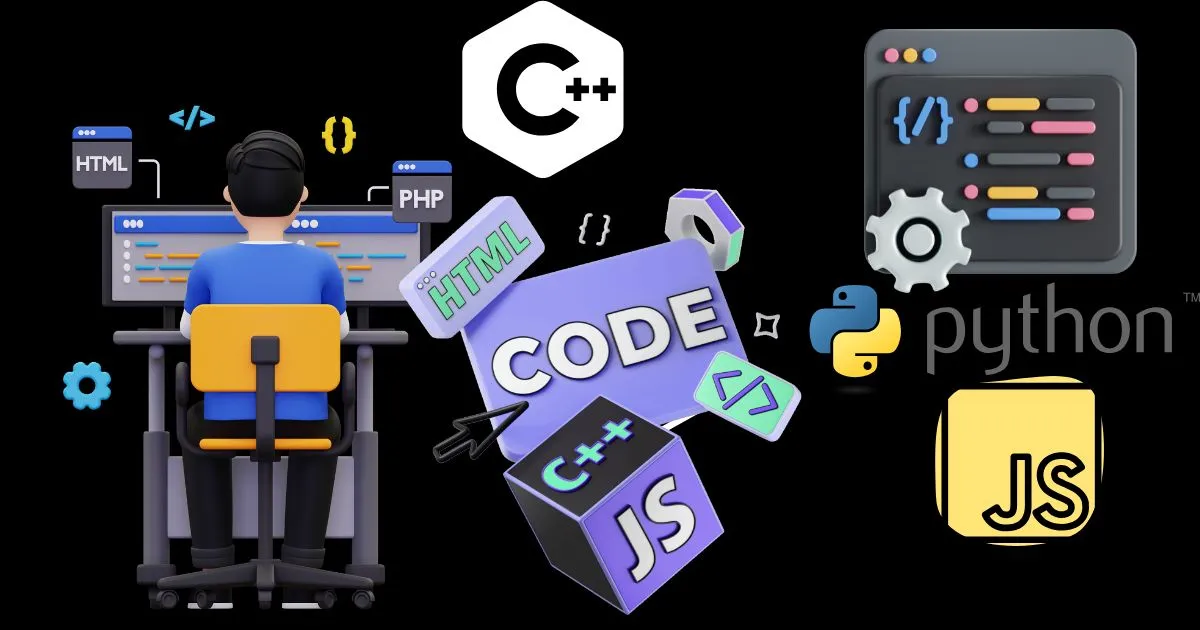Master Top Cybersecurity Programming Languages 2025: Boost Your Skills and Protect the Future
Cybersecurity is evolving faster than ever in 2025! 🚀 With cyberattacks becoming more advanced, learning the right cybersecurity languages is no longer optional — it’s critical. Discover the top cybersecurity programming languages that will help you build a powerful, future-proof career and outsmart even the most sophisticated hackers.
Table of Contents
Why Programming Languages Matter in Cybersecurity
Cybersecurity isn’t just about firewalls and antivirus software. It’s about understanding how systems work — and how they can be broken. Knowing the right cybersecurity programming languages empowers cybersecurity experts to:
- Analyze threats effectively
- Automate security processes
- Find and fix vulnerabilities
- Create robust security tools
Without coding knowledge, your ability to defend against cyberattacks is limited.
Top Cybersecurity Programming Languages to Learn in 2025
1. Python
Why Learn It: Python is the most popular language in cybersecurity because it is versatile, easy to learn, and has a massive collection of libraries.
Use Cases in Cybersecurity:
- Penetration testing
- Malware analysis
- Automating security tasks
- Writing security tools like scanners
Example:
import socket
# Simple port scanner
ip = '192.168.1.1'
for port in range(1, 1024):
sock = socket.socket(socket.AF_INET, socket.SOCK_STREAM)
result = sock.connect_ex((ip, port))
if result == 0:
print(f"Port {port}: Open")
sock.close()
2. C and C++
Why Learn Them: These languages help you understand system-level concepts like memory management and operating system processes — critical knowledge for vulnerability research.
Use Cases in Cybersecurity:
- Writing exploits
- Reverse engineering
- Malware creation and analysis
Example:
#include <stdio.h>
int main() {
printf("Hello Hacker World!\n");
return 0;
}
This is a simple program, but imagine manipulating memory allocations and buffer overflows — that’s where C/C++ shines in cybersecurity.
3. JavaScript
Why Learn It: JavaScript is crucial for understanding web application security, especially vulnerabilities like XSS (Cross-Site Scripting).
Use Cases in Cybersecurity:
- Analyzing client-side attacks
- Building secure web applications
- Security testing (especially for front-end vulnerabilities)
Example:
// Simple example of a Cross-Site Scripting attack vector
let name = "<script>alert('You are hacked!');</script>";
document.getElementById("output").innerHTML = name;
Understanding this example helps you secure web apps against XSS.
4. SQL
Why Learn It: Many cyberattacks, including SQL injection, target databases. Knowing SQL lets you both defend and ethically hack databases.
Use Cases in Cybersecurity:
- Database security
- SQL Injection vulnerability testing
- Data forensic investigations
Example:
SELECT * FROM users WHERE username = 'admin' --' AND password = 'password';
Learning how malicious queries are formed helps you prevent them.
5. Java
Why Learn It: Java runs on billions of devices. Understanding Java security models is essential for protecting enterprise environments.
Use Cases in Cybersecurity:
- Android security
- Enterprise application security
- Secure software development
Example:
public class HelloSecurity {
public static void main(String[] args) {
System.out.println("Secure Java Code Running...");
}
}
When building Android apps or enterprise software, security starts with your code.
6. Bash and Shell Scripting
Why Learn It: Every cybersecurity professional needs automation. Bash scripting lets you automate tasks on Linux-based systems.
Use Cases in Cybersecurity:
- Writing scripts for incident response
- System hardening
- Automating vulnerability scans
Example:
#!/bin/bash
for ip in $(cat ips.txt); do
ping -c 1 $ip > /dev/null && echo "$ip is up" || echo "$ip is down"
done
This script checks the availability of a list of IPs — simple, yet powerful!
7. Go (Golang)
Why Learn It: Go is growing rapidly in cybersecurity for building fast, efficient, and secure applications.
Use Cases in Cybersecurity:
- Writing penetration testing tools
- Developing malware and security tools
- Networking tools
Example:
package main
import "fmt"
func main() {
fmt.Println("Building secure apps with Go!")
}
Its concurrency model and speed make Go ideal for cybersecurity tools.
FAQ:
1. Can I get a cybersecurity job without programming?
While it’s technically possible to land an entry-level cybersecurity job without strong coding knowledge, mastering cybersecurity languages gives you a significant competitive edge. For instance, roles like cybersecurity analysts might initially focus on monitoring, but moving into penetration testing, security engineering, or malware analysis almost always demands programming skills. Even tasks like writing custom scripts to automate incident response workflows involve languages like Python or Bash. Employers today seek candidates who not only understand threats but can actively build defenses using cybersecurity languages.
2. Which language should a beginner start with?
Python is widely recommended for beginners entering the cybersecurity field. Its clean syntax, broad library support, and direct application to real-world cybersecurity challenges make it a perfect starting point. For example, writing a Python script to automate vulnerability scans, like using libraries such as scapy for network traffic analysis or nmap automation, immediately adds practical value to your cybersecurity skillset. Python’s role across cybersecurity languages cannot be overstated — it bridges offensive and defensive tasks.
3. How long does it take to learn a cybersecurity programming language?
Learning a cybersecurity programming language such as Python or Bash can take as little as 3 to 6 months for basic proficiency if you dedicate consistent effort (e.g., 5-10 hours per week). Achieving advanced skills, like building your own penetration testing frameworks or forensic tools, might extend to 9-12 months. For instance, mastering Python enough to automate penetration tests with frameworks like Metasploit or writing custom exploit scripts could take a focused learner less than a year. Consistency and project-based learning are key to mastering cybersecurity languages.
4. Is C or Python more important for cybersecurity?
Both C and Python play irreplaceable roles, depending on your career focus within cybersecurity. Python is the dominant language for scripting, automating tasks, and quickly building security tools. For example, Python is often used to create tools that scan for vulnerabilities, like simple port scanners or brute force scripts. On the other hand, C is crucial for understanding how exploits work at the system level, such as crafting buffer overflow attacks or reverse engineering malware binaries. In essence, cybersecurity professionals fluent in both cybersecurity languages — Python and C — have the flexibility to address high-level automation tasks and low-level system vulnerabilities.
5. Are there cybersecurity certifications requiring programming knowledge?
Absolutely! Several prestigious cybersecurity certifications require proficiency in cybersecurity languages. For example:
CPT (Certified Penetration Tester): Requires the ability to script custom attacks and tools, usually with Python and Bash. Understanding programming enables certification holders to move beyond “point-and-click” hacking tools and develop custom solutions during engagements — a highly valued skill in the cybersecurity industry..
OSCP (Offensive Security Certified Professional): Candidates are expected to write Python scripts to automate attacks and analyze vulnerabilities.
CEH (Certified Ethical Hacker): Includes modules on writing scripts and understanding exploits that often require knowledge of Python, C, and JavaScript.
Final Thoughts
In 2025, cybersecurity demands more than just vigilance — it demands coding excellence. Whether you’re scanning for vulnerabilities, developing secure applications, or analyzing malware, knowing these cybersecurity programming languages will make you an invaluable asset to any organization.
Don’t just be a cybersecurity user. Be a cybersecurity builder. Master these languages, and protect the future!






